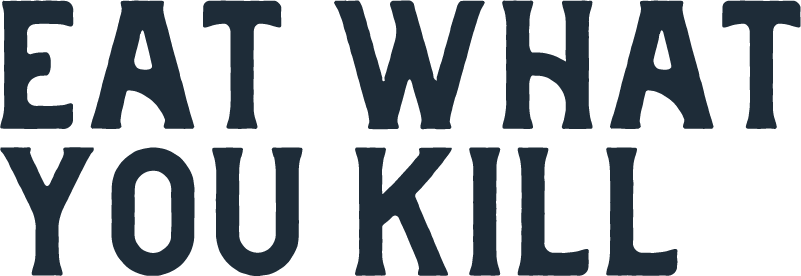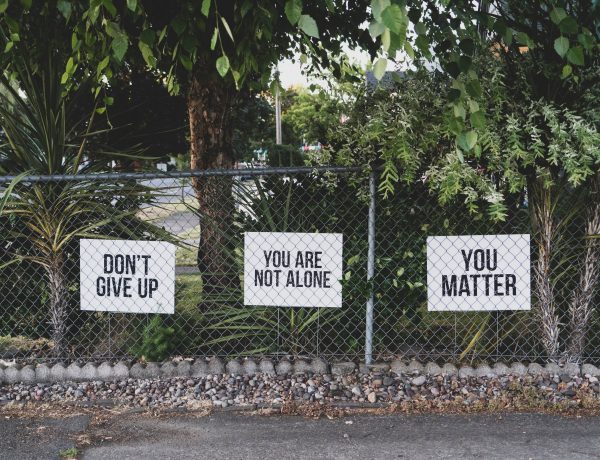It’s Mental Health Awareness Week this week and I have teamed up with my good friend, and Clinical Psychologist, Ampara Bouwens, to touch on seven ‘quick-fire’ style topics and tools that can nurture and improve our mental health and wellbeing. This year’s theme for MHAW is ‘Reimagine Wellbeing Together’ a fitting subject given all that 2020 has thrown at us. Where possible I will include examples from my own life, in an effort to show how normal and healthy this type of conversation is.
DAY ONE – CONNECTION:
It’s fitting that given the theme of this year’s MHAW (‘Reimagine Wellbeing Together) we open by discussing connection. In us humans, connection lives in our prefrontal cortex, the brain region responsible for, among other things, personality expression, decision making, and social behavior.
In times of stress, it’s easy to retreat and isolate ourselves, sometimes it can actually feel productive to do so. When it comes to our wellbeing, other people matter. By nature, we are social beings and to deprive ourselves of connection is to go against an often sub-conscious need to be involved in relationships on all levels.
Taking time to strengthen, and establish relationships is important; you are cultivating a sense of belonging and self-worth. 2020 has been a year of increased isolation, lock-downs, loss of work, and general uncertainty – this takes a toll on how we feel and operate on the daily.
At the end of 2019, I was sick, burnt out, constantly dizzy and lethargic, I had a continual headache and after a few visits to the doctor, and tests that came back clear, I realised I’d crafted my own little anti-social ritual of high-stress work, and little connection with the things and people that made me happy. It was a turning point for me and the more I saw friends, went spearfishing, and did the things I enjoy, with the people I care about, the less my physical symptoms presented – eventually, they disappeared. Those physical symptoms illustrate the very real and detrimental effect that lack of connection can have on an otherwise healthy human, and now for me, serve as an internal warning bell. I learned that when we stay connected, we thrive!
So, this week, connect with friends and family. Check on them and make time around your commitments to enjoy their company. Arrange a catch-up, or a mission and speak to someone new. Make it an on-going part of your daily schedule, like going to the gym, or brushing your teeth.
Can you think back to a time you felt unwell? Were you in a cycle of all work and no play? Do you feel a positive difference when you’re constantly connected to those around you?
DAY TWO – GRATITUDE:
In essence, practicing gratitude is the art of recognizing and celebrating the good things that happen to us, the things people do for us, and the things we do that add positivity to our lives.
Gratitude is a selfless emotion that we use to form and strengthen relationships and studies have proven its practice to be of benefit in helping people feel happier, especially those suffering emotional turmoil.
While the benefits of gratitude can take some time to appear, a consistent practice can unshackle us from negative thinking patterns and toxic emotions. It need not be shared verbally or publicly, it can be a daily personal exercise that over time we will help retrain our brains and thought patterns to operate in a more positive way.
I’ve personally spoken to a number of people who make this a part of their daily routine and they note having better relationships, less guilt, more empathy for others, better sleep and energy, and a greater appreciation for where they are in life, and what they have.
Having a stronger and healthier outlook in turn helps us move away from the things that hinder our mental health and wellbeing.
How do we practice gratitude? There are many ways, shapes, and forms but there are two that I like, which I think are easy to implement and take little time our of our busy days.
One, before every breakfast and dinner, think about three things you’re grateful for. Silently consider them, or discuss them with those around you.
Two, and the process I’ve adopted in the last 6 months, (thanks to Krista from 09thrive) is to download an app called The 5 Minute Journal. Each day it will provide you some inspiration, and prompt you to complete a morning and evening entry that ensures you start and finish each day on a positive note. I notice quickly a downturn in my thoughts and mood when I let this slip.
Give it a go! However, you decide to do it. Make practicing gratitude a part of your consistent daily schedule.
If you already make use of this amazing mind-hack, how do you do it? What benefits have you noticed?
DAY THREE – RESILIENCE:
Resilience refers to our ability to see failure as a form of feedback and come through life’s knockdowns with a positive attitude. There’s a saying, “We grow through what we go through” which I’ve always associated with resilience and our ability to adapt to and learn from significant adversity, trauma, tragedy, and stress.
Being resilient doesn’t mean that we don’t experience these downturns, its more a description of the behaviors, thoughts, and actions that as humans we can all learn and develop to get through tough times and prosper as we come out the other side. If you’re going through hard times now, please know you are growing and the time will come where you feel that newfound strength and desire to face challenges head-on.
Like training our muscles and endurance for a big mission, resilience takes time and effort to grow and develop. We can intentionally work on aspects of our lives, and make daily choices that will ultimately determine how resilient we are when things aren’t going well.
Life changes, for the good and the bad, it’s inevitable – we want to not only survive change, but grow and thrive as we make our way along our chosen, and usually unchartered paths.
Developing a resilient mindset looks different for everyone, our experiences and reactions are all unique and our internal thoughts and processes are all very personal. There are many ways to train resilience, for me, it’s getting as far out of my comfort zone as I can, and often. It’s noticing and altering negative thought patterns, and problem-solving rather than dwelling. In the last few years I’ve learned to seek the uncomfortable, and at times the unbearable, then carry on anyway. It’s a hard-fought journey at times, but there are moments where I realise just how far I’ve come.
We should all work on connections, take care of our bodies and mind, practice mindfulness, support others, set goals, look for new opportunities, and most importantly know, there will be days we feel like we are moving backward. It’s all part of the journey and in time we will develop a little less resistance to the new and unknown, and a little more tolerance to pain.
DAY FOUR – COMFORT ZONE:
Carrying on from, and related to the previous article on Resilience, we come to comfort zones, a topic I am becoming an expert in, and one of the areas in my life that I’ve done the most work on, with noticeable results!
We often avoid experiences that bring with them, negative and painful feelings and emotions. We narrow our field of view to include the things we are comfortable with, why wouldn’t we – this is where we are safe.
I have learned that stepping outside my comfort zone to face fear head-on, is one of the best ways to reduce anxiety and apprehension about an experience. When we (safely) expose ourselves to what frightens us, we begin to strip away the power and presence of those negativities associated with the experience.
This isn’t something that happens overnight, it can take weeks, months, and even years to become comfortable living with the uncomfortable, (trust me I know) but each time we chip away at it, we gain strength, confidence, and most importantly pride in ourselves.
I believe without reservation that experiencing doses of stress and anxiety, in the pursuit of something we are passionate about, is healthy. What we fear most, is usually failure but if we never try we’ll never know what we are capable of. We will fail at some point, but then we will win, and realise the failures, and hurdles along the way, are what shape us and make the end result deeply worthwhile.
Don’t settle for mediocrity, just to avoid a perceived threat. Try something new, something hard, or something that instills within you a sense of apprehension and fear. Keep in mind this will look different for everyone and should be done with safety as a priority.
In my experience, the stronger the initial negative emotional response, the more meaningful it is when you eventually conquer it and thrive in your new-found passion or pastime.
Leaving your comfort zone behind will build resilience, it will help you get used to change and you will learn to regulate your emotions which will serve you well in all areas of your life.
What experience do you avoid out of fear? Is your comfort zone narrow, or do you already challenge the norm and live in the unknown?
DAY FIVE – BOUNDARIES:
Setting boundaries is an important part of self-care and a way we can help define our identity. It enables us to take responsibility for how we are treated and prioritizes our physical and emotional needs.
Boundaries are often unseen and disregarded especially when they lack clear definition and communication. In setting these effective standards we build self-esteem, preserve energy, and live with a greater sense of confidence and independence.
Whether we are talking personal, professional, or relationship-based boundaries, we must consider our values, our gut feelings, and our rights when articulating what we want and need. Our background, family, personality, and life experiences will also come into play.
It took me many years of running a business to discover, and communicate what my professional boundaries are. It’s a constantly evolving life lesson, one I still struggle with at times but when I managed to draw a line in the sand with assertiveness, life changed. My expectations were clear, no one was left feeling taken advantage of, and the value of what I offer grew along with my sense of confidence to take on bigger challenges and projects.
The ways to implement boundaries vary, but in my experience, the best, and often hardest approach is to be clear and concise, without over-explaining and ensure you include why it’s so important to you. Learning to say no, is also another awesome tool to master.
Having no, or unclear boundaries often result in us giving our energy to people and things, well before ourselves, we end up holding everyone else’s feelings and needs and neglecting our own.
Practice self-awareness, define your emotional and physical safe places, and begin to communicate clearly. With time you’ll feel your self-worth grow, your value soar, and the unhealthy people and pastimes in your life will slowly fade away.
Do you often do things you don’t want to do? Are you a people pleaser like me? I think we can all learn to look inward and set more stringent and positive boundaries in all areas of our lives.
DAY SIX – BREAKS:
Restlessness, sleep troubles, appetite changes, fatigue, sickness, and lack of motivation, are some signs that it might be time to take a break. In this day and age, we put much time and importance on the hustle, the ‘work-or-fail’ mindset, and the need to be continually moving towards something.
It’s become almost a sought after lifestyle to be relentlessly working, or grinding towards a goal. We see influencers and entrepreneurs quoting the #nodaysoff lifestyle, instilling in us a perception that if we stop for a moment, we will fall behind.
It’s just not true. In fact, over the years I’ve learned overworking, overthinking, and moving without rest can be the single most detrimental approach, to reaching the goals we work so hard to achieve.
Everyone and I mean everyone, needs a break from time to time. It’s often the last thing on our minds, especially when we are on a roll, but without planned and adhered to pauses, our body, and our mind will suffer.
It could be a quiet hour out of your busy day, a weekend away, or a holiday with friends and family. I’m sure most, if not all of us are ready for some respite from the stresses of what’s currently going on in the world.
Learn to recognise the symptoms of being burned out. For me, I lose my creativity, I get a never-ending headache, and no matter how much I sleep, I spend my days wading through a cloud of mind-fog.
Find a passion that allows you to disconnect, from work, from responsibility, and from social media. This is your time and place to recharge. You will be a better boss, worker, partner, and person for it. You will think with more clarity, which will allow for more focus and productivity.
As a business owner I know, proper breaks can be few and far between but make sure you do something, at least once a week, that’s selfishly for you and when possible, disconnect and disappear for a day or two. Inspire those around you to do the same and you will notice your relationships flourish and your wellbeing skyrocket.
When was the last time you did something unapologetically, for you?
DAY SEVEN – CONVERSATION:
I decided to close off the week, by coming full circle, back to connection, and reminding everyone (and myself) to be more open to meaningful conversation. Mental Health has been a notoriously unspoken subject, yet plays a crucial part in our overall well being. The long-standing stigma around mental illness is finally lifting and slowly but surely the discussions are happening.
None of us are immune to mental health issues, and for everyone, it will look and feel different. Regardless of your social status, your job, or your financial situation, at some point, you will benefit from at the least, talking to a friend about something that’s weighing on you.
I’ve learned that a quick and honest yarn with a trusted mate can have as much impact as a structured conversation with a therapist. A few years ago I made it a mission to start talking more about what I struggled with, mostly with close friends, but also with a professional (thanks Ampara) in an effort to understand and minimise the power my negative thoughts and emotions had on my life.
When I started spearfishing, I struggled a lot, with panic, and anxiety. I put it down to (covered it up with) being seasick. In time, I just started explaining to my crew what was going on. In their own way, they listened and understood. The power of what was happening internally eased and I began to love my new pastime. On the days I don’t feel so great, I no longer feel embarrassed and withdrawn, in fact, we often turn it into light humor, which shows they have my back and further cements my confidence and passion for what I’m doing.
If you know someone who might be struggling, ask them if they are ok. You don’t always have to understand, but showing you care, and are willing to listen will mean more than you’ll ever know.
Through crafting these meaningful conversations, and in turn, inspiring others to do the same we can slowly inform everyone, from all walks of life, that it’s totally ok to feel what we feel, and when required, ask for help. If you’re the one on the sharing side, be open and really articulate where you are at emotionally. If you’re on the support-side then feel free to talk less, listen more, and realise you don’t have to have the answers.
The truth is, no one is as perfect as they make out on social media, everyone has flaws and daily struggles. Having a hard time, on any level is common, and it’s human. Some of us will unfortunately experience weeks, months, and even years of distress. It happens, there’s little point in ignoring it.
This Mental Health Awareness Week has offered us seven days to shine a light on an important topic, it has afforded us the time to consider our own mental health, and that of those we care about. We should all strive to continue the dialogue and consideration. As kiwi’s our statistics are poor, yet we are a country that has proven we know how to band together when times are tough.
So, at home, at work, and within your circle of friends, welcome and nurture everyone’s need and right to have a chat about a shit day, or a dark week, or a hard year. Talking really is the first step to healing, and the more we do, the more we will recover, and the more we will spread the word of how effective human connection and understanding truly is
National helplines
Need to talk? Free call or text 1737 any time for support from a trained counsellor
Lifeline – 0800 543 354 (0800 LIFELINE) or free text 4357 (HELP)
Suicide Crisis Helpline – 0508 828 865 (0508 TAUTOKO)
Healthline – 0800 611 116
Samaritans – 0800 726 666




No Comments